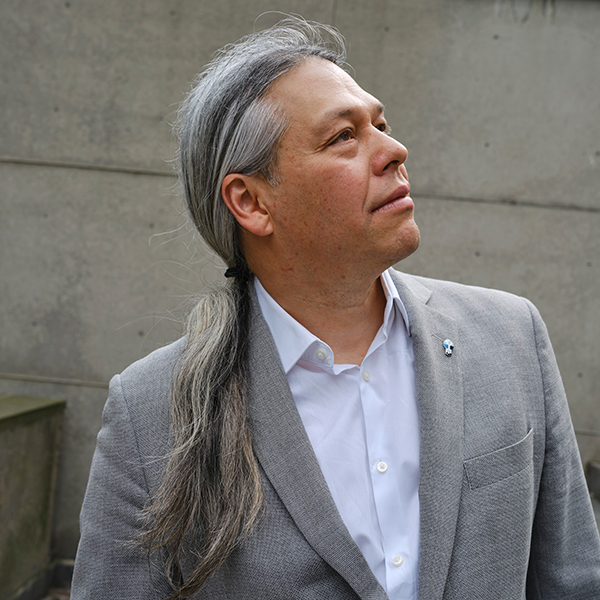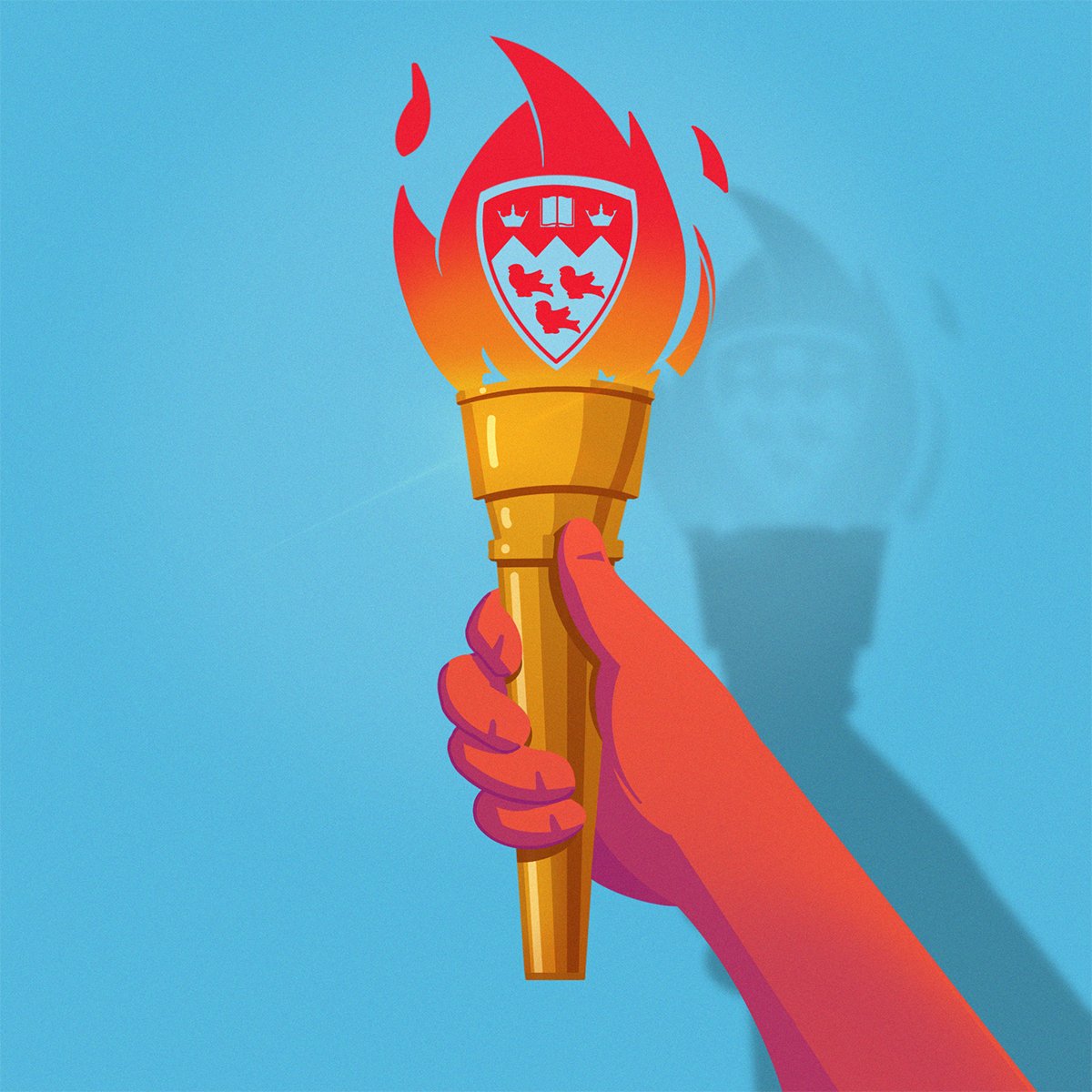Noah Richler’s headfirst dive into federal politics wasn’t done on impulse. It couldn’t be: the Toronto writer knew too much about politics, about how it wasn’t for the faint-hearted, that running wouldn’t be easy (or cheap), and that it would consume his entire life for well over two months.
Plus, he wasn’t even expected to win. He was, in the language of politics, running to lose in the historically Liberal Toronto riding of Toronto-St Paul’s.
And yet, because he believed that Canada had lost its way, along with its very identity, under Stephen Harper’s Conservative government, and was so dismayed by what he saw as an arrogant and entitled Liberal Party, Richler, BA’83, decided run for the NDP anyway.
The exhausting, bruising, thrilling but ultimately failed electoral run is the subject of his latest book, The Candidate: Fear and Loathing on the Campaign Trail, a political memoir that reflects on his first eye-opening jump into federal politics.
“Much to my astonishment, there did not exist a single memoir of political campaigning from the ground,” he says. While there are plenty of books about Canadian politics viewed “from on high,” Richler, the son of legendary Montreal writer Mordecai, wanted to write something that was both personal in detailing his particular journey and universal in laying out some hard truths every candidate learns at one point or another.
“The experience of working the streets, anxieties about the evolving nature of our parliamentary democracy, the position of the candidate as a minion in a big enterprise or of [someone] not leading his or her own campaign but being just a piece of something that people, especially volunteers, come forward to make possible – all those aspects should be of some value across the board,” he says.
The Globe and Mail, which included The Candidate among its top 100 books for 2016, described it as “an instruction manual, a cautionary tale and an honest retelling of campaign realities from a flawed and deeply human candidate.”
The book get down into the manic, at times cynical, at times humbling give-and-go of a federal campaign, and the perils of running one on a shoe-string budget. Much of Richler’s time was spent at meet-and-greets and at fundraising events, when he wasn’t walking the diverse though rapidly gentrifying streets of his constituents, shaking hands, discussing policy and trying his best to woo voters.
Richler is candid about his experiences, including his sometimes tense exchanges with national campaign brass in Ottawa. Much is made, and little of it good, of barbed Facebook posts he’d written prior to becoming a candidate, of fellow NDP candidates reaching into the wallets of his riding’s constituents, or of his offering advice to people who didn’t solicit it. At one point in the campaign, Richler earns national attention with a pointed and cheeky parody of a Justin Trudeau TV ad.
He was always clear-eyed enough to realize that his chances of winning the riding were slim. But Richler was determined not to merely go through the motions of a campaign: he was all in.
“You can’t lead a whole great big team of good-hearted people who are coming out for no money, donating their time and resources, if you’re dead certain you’re going to lose,” he explains. “You have to start believing you can win it. It’s a hell of a lot easier if you campaign that way.”
He was – is – clearly inspired by those who worked to make his campaign a success. And Richler, a former radio producer, writes that he was at his best talking to voters, discussing their visions of the country and where they thought it should go.
Were he to run again – and he hasn’t ruled the possibility out – he says that he “wouldn’t begin by being a know-it-all” as he had in this past campaign, with frequent clashes with senior party operatives over matters of policy and strategy. That said, he adds that “there is nothing I’ve done in this book or in that campaign that would be inconsistent with how I would approach the next contest.”
As an involved citizen, Richler would like to change what he sees as an inherent exclusivity to those who have the means and time to run for office. The tremendous demands an electoral campaign makes on a candidate’s time and energy leaves the privilege out of reach for most working Canadians. The “overnight janitor of a Bay Street office tower” has virtually no chance to run for MP.
Richler further notes that between 80 and 94 percent of voters make their election day choice based on the party leader and not the local candidate. “So if you’re just going to vote for a leader as you might for a president, do we need to bother with local campaigns? I still don’t know completely the answer to that question.”


